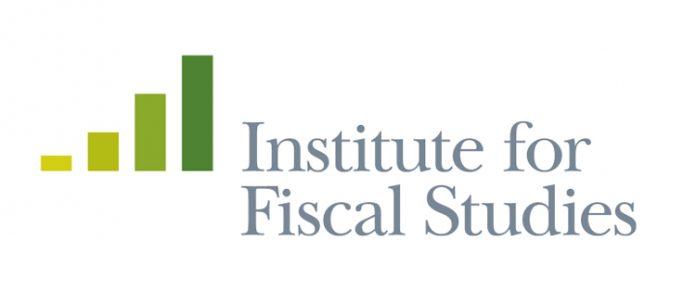The Institute for Fiscal Studies (IFS) has called on the Ghanaian government to set realistic budgetary targets to ensure fiscal credibility and effective economic management.
In a recent report, the research think tank emphasized that credible budgets are essential for achieving policy goals and maintaining public confidence in fiscal policy.
The IFS highlighted Ghana’s poor track record in revenue projections, noting that actual revenue and grants have consistently fallen short of budget targets over the past decade. From 2013 to 2023, actual revenue deviated from targets by an average of -7.4%, with only two years falling within the Public Expenditure and Accountability (PEFA) framework’s ideal range of -3% to +6%. This chronic underperformance, the IFS argued, undermines fiscal policy effectiveness and erodes confidence in the government’s economic management.
“Effective fiscal policy rests on credible budgets. If a budget lacks credibility, its policy intentions are less likely to be achieved,” the IFS stated. “An essential feature of a credible budget is realistic revenue targets, since revenue is the cornerstone of any budget.”
The report also cautioned the government against rushing to return to the international bond market, citing Ghana’s history of debt crises. The country has faced two major debt crises since 2000: the first in 2001, which led to debt forgiveness under the Heavily Indebted Poor Countries (HIPC) Initiative, and the second in 2022, triggered by a loss of access to international capital markets after credit rating downgrades.
The IFS warned that excessive reliance on external borrowing, particularly from volatile international bond markets, poses significant risks to Ghana’s economic stability. Instead, the think tank urged the government to maintain the fiscal discipline demonstrated in recent years, when the absence of international bond market access forced the country to pursue lower fiscal deficits and explore non-debt-creating avenues for increasing international reserves, such as the Gold Purchase Program.
“The government should not look for the least opportunity to return to the international bond market,” the IFS advised. “Past experience shows it is especially imperative to avoid sliding back into another foreign debt entanglement. The nation must avert a return to excessive debt build-ups of any form at all costs.”
The IFS recommended that the government draw lessons from the past three years, during which Ghana managed without borrowing from international bond markets. This period, the think tank noted, demonstrated the importance of fiscal prudence and leveraging natural resources for self-reliance.
“The government should maintain its stance of pursuing lower fiscal deficits, as low deficits imply low borrowing,” the IFS stated. “The Gold Purchase Program, which increased international reserves without creating debt, should serve as a model for leveraging the nation’s natural resources for economic stability.”
The IFS’s recommendations come at a critical time for Ghana, as the government seeks to rebuild fiscal credibility and stabilize the economy following the recent debt crisis. By setting realistic revenue targets, avoiding excessive borrowing, and prioritizing fiscal discipline, the government can restore confidence in its economic management and lay the foundation for sustainable growth.
- President Commissions 36.5 Million Dollars Hospital In The Tain District
- You Will Not Go Free For Killing An Hard Working MP – Akufo-Addo To MP’s Killer
- I Will Lead You To Victory – Ato Forson Assures NDC Supporters
Visit Our Social Media for More





